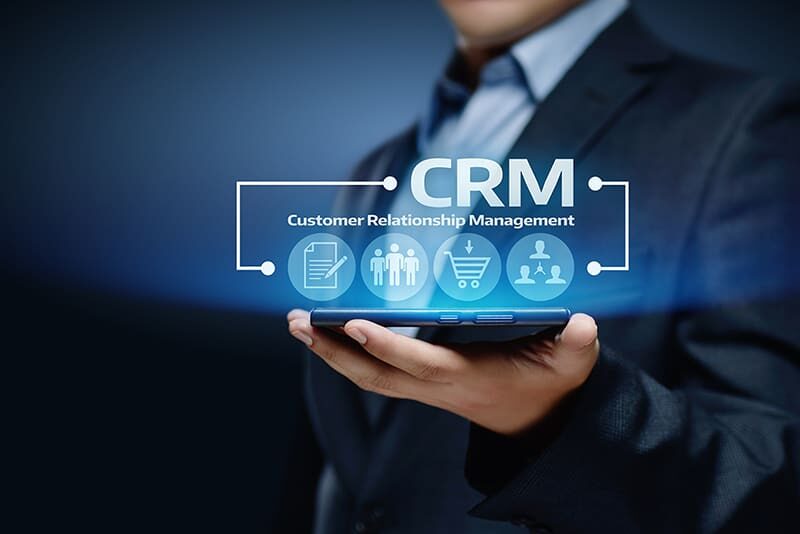With the market becoming increasingly competitive, small businesses must find economical tools to help them manage customer relationships, streamline sales, and increase productivity. For any small business to thrive, the Best CRM Software for Small Businesses is essential for organizing customer data, tracking interactions, and improving communication. However, picking a CRM can be overwhelming, given the many choices in the market. This guide will share the vital aspects of picking the right CRM software for your small business.
What is CRM Software?
CRM ( Customer Relationship Management ) software is a platform to manage relationships with your customers or potential customers. It stores contact information, tracks sales automates tasks, and analyzer analyzes customer data. You can choose the right CRM software for small businesses to enhance efficiency, allow better service to customers, and help increase revenue.
i. Define Business Goals Clearly:
Consider doing this step before making a CRM selection. Are you looking for a lead management tool, customer support tool, sales tracking tool, or marketing automation tool? Understanding these goals will help you select a CRM that supports your overall strategy and improves efficiency. Setting goals will help direct your CRM investment toward achieving business growth.
ii. Focus on Simplicity for Maximum Efficiency:
A CRM must be straightforward to use for greater adoption by the employees. Complex software causes inefficiency and time waste. Find a platform that is easy to navigate, offers customizable dashboards, and provides clear training materials to enable smooth implementation. It should be easy for the employees to use without requiring major training.
iii. Ensure Scalability for Future Growth:
As your business grows, you will want a CRM that can grow . Go for a system with more advanced features, greater storage capacity and automation functionality. As your operations grow, you will not need to waste valuable time and resources switching to a new CRM (you may even teach them how to scale). A progressive CRM will accommodate increasing customer pools and growing teams.
iv. Explore Integration Possibilities with Current Software:
The CRM must integrate with relevant tools like your email platform, marketing software, accounting systems, and eCommerce platforms. Integration eliminates the need for manual data entry, streamlining workflows and enhancing overall business efficiency.A well-integrated CRM software enables businesses to integrate functions and ensure seamless operations.
v. Focus on Automation Features for Productivity:
Through automation, you can increase efficiency by processing client follow-up emails, scheduling appointments and nurturing leads. Businesses can save time, minimize human errors, and concentrate on their strategic growth initiatives by automating these tasks through a CRM with strong workflow automation. It allows easy automation of regular processes that promote productivity and ensure timely completion of important tasks.
vi. Select the Appropriate Deployment Model:
Choose between a cloud-based and on-premise CRM. Advanced cloud-based CRMs provide flexibility, remote access, and lower upfront costs – perfect for small businesses. While on-premise CRMs give complete control over data security and storage, they may need a larger initial investment.2023 The correct deployment model varies depending on business requirements and available resources.
vii. Make It Mobile Friendly for Easy Access:
Remote work has also become the new normal, so mobile CRM enables your teams to access customer data anywhere. Seek out CRM that has a fully functional mobile app to use seamlessly while on the go to make quick decisions. Your team will remain connected and responsive to customer needs wherever they are with mobile accessibility.
viii. Assess Customer Support and Training Resources:
This is especially important for businesses without dedicated IT workers or teams, for whom reliable customer support is essential. To prevent delays in onboarding and future issues, choose a CRM provider that can assist you 24/7 with live chat, email support services, and extensive training resources. Another advantage is that support is comprehensive and reviews technical issues quickly, reducing downtime.
ix. Check out the Pricing and Subscription Plans:
CRM software offers several pricing models, including free versions, monthly subscriptions, or one-time buying. Also, compare the various plans’ features, scalability, and long-term value to find a CRM that best suits your budget and business needs. By balancing cost with required features, you will ensure you maximize maximize the value of your purchase!
x. Focus on Security and Compliance Measures:
CRM software stores sensitive customer data, so it must have strong security measures. Check for encryption, multi-factor authentication, regular backups, and compliance with data protection regulations, such as GDPR. Strong security not only protects your business but also increases trust with customers. A secure CRM protects your business from cyber threats and data breaches.
Conclusion:
Choosing the Best CRM software for small businesses is a decision that shall be made after evaluating your needs, budget, and necessary features. A selected customer relationship management system increases productivity, strengthens customer relationships, and creates business development. When deciding which services to use, prioritize ease of use, scalability, automation, and security. A good investment in the right CRM will allow your small business to survive in the competitive market.
FAQs:
Q1. What CRM is best for small businesses?
A: CRM stands for customer relationship management—and the best CRM for you will depend on what you need. Still, popular choices include HubSpot CRM, Salesforce Essentials, and Zoho CRM.
Q2. What is the price of CRM software for small enterprises?
A: CRM prices vary widely, with free plans (e.g., HubSpot CRM) and premium plans ranging from $12 per user/month.
Q3. What to Look For in a CRM for Small Businesses
A: Some key features that should be considered are mutual interaction, automation, integration, scalability, and customer assistance.
Q4. Is a cloud-based or on-premise CRM better for small businesses?
A: While on-premise CRMs give you better control over your data, cloud-based CRMs are easily more favoured due to their flexibility, lower cost, and the ability to access your data remotely.
Q5. Does CRM software integrate with other business tools?
A: Yes, most CRMs today come with inbuilt integrations for everything from email marketing software to eCommerce tools, accounting software, and remote customer support systems.
By following these guidelines, you can confidently choose the Best CRM software for small businesses and set your company up for success.





























